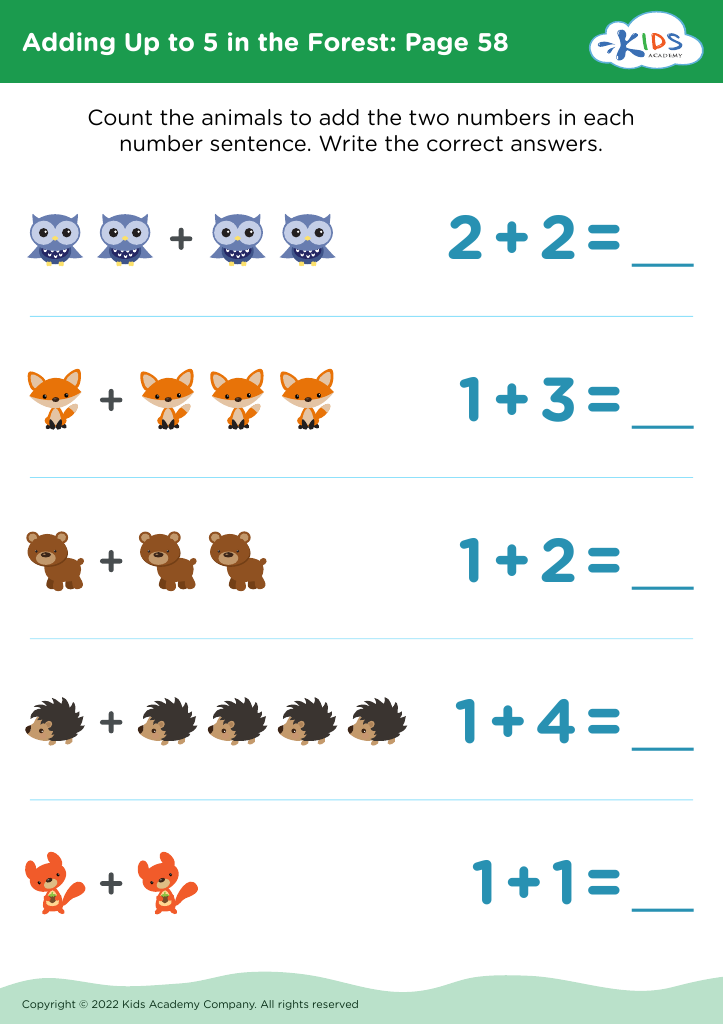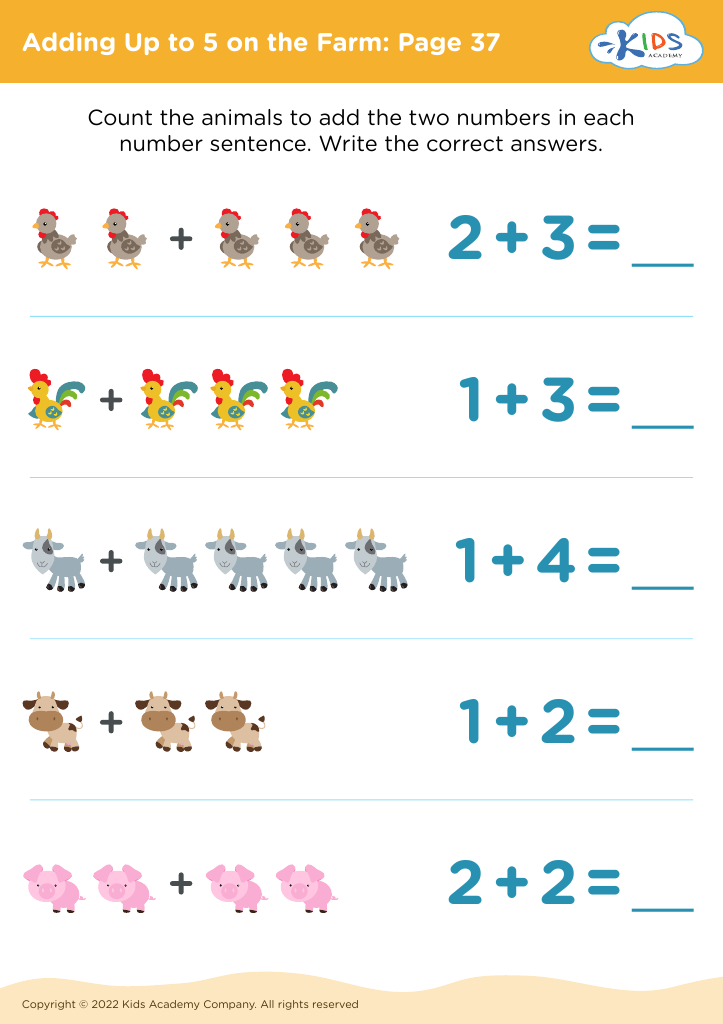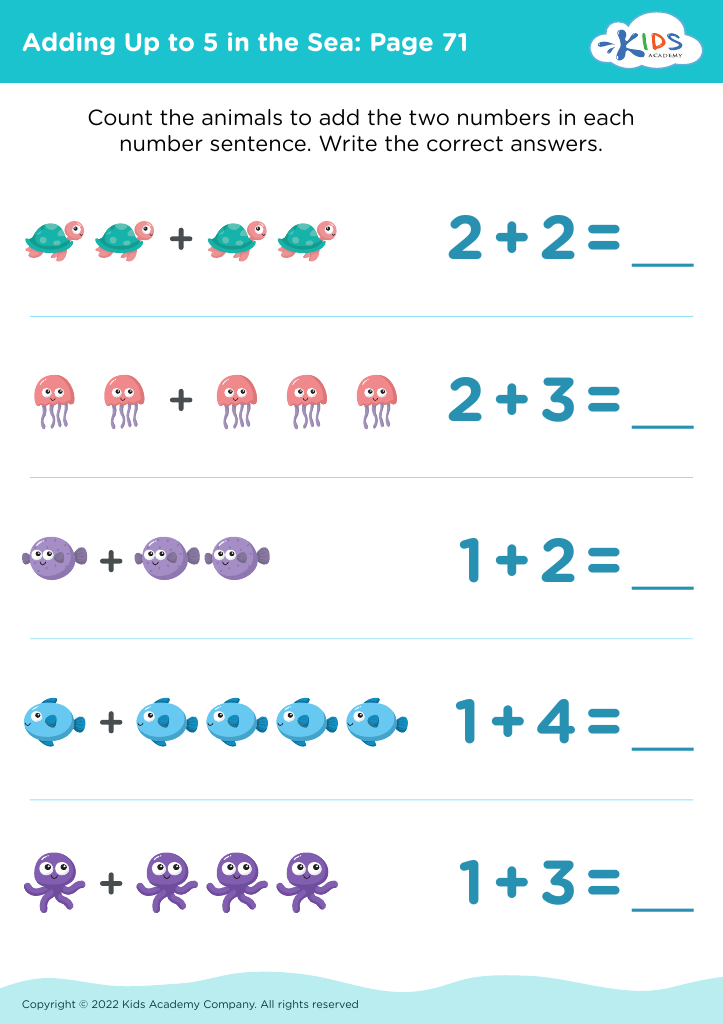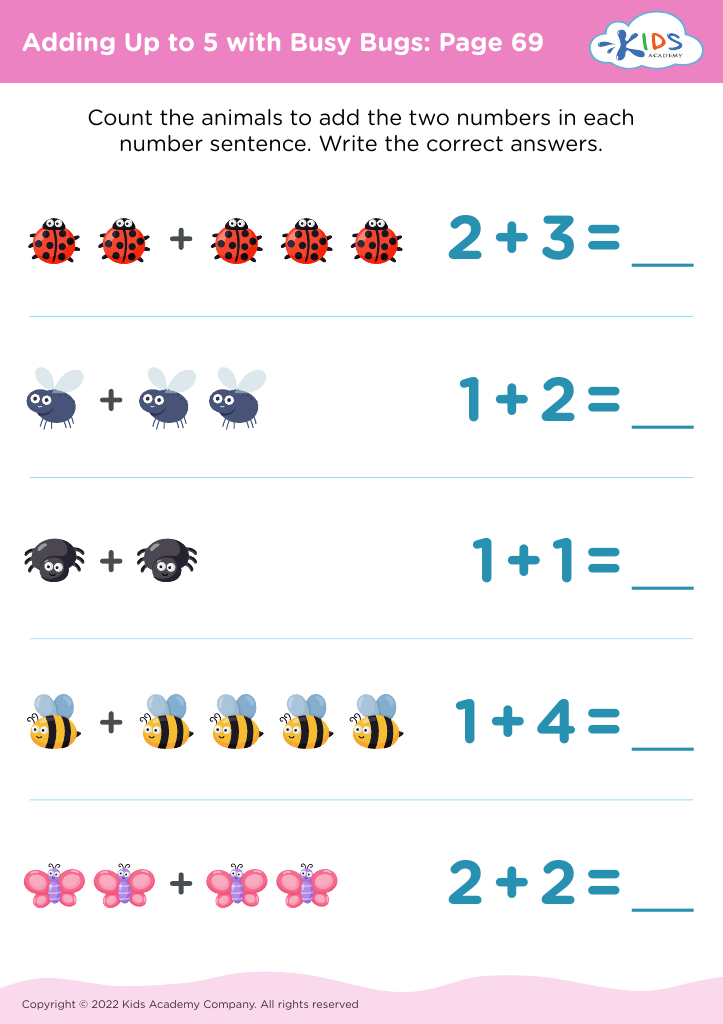Understanding numeracy Addition & Subtraction Worksheets for 4-Year-Olds
4 filtered results
-
From - To
Introducing our "Understanding Numeracy: Addition & Subtraction Worksheets for 4-Year-Olds" – an excellent resource to kickstart your child's mathematical journey. Tailored specifically for pre-k kids, these engaging worksheets enhance foundational math skills through fun, interactive activities. Children will confidently learn to recognize numbers, count, and conduct simple addition and subtraction problems. With colorful illustrations and age-appropriate challenges, our materials make learning enjoyable while promoting problem-solving skills and numerical fluency. Give your child the tools they need for early math success through guided practice designed to build confidence and a love for learning math! Visit now to explore our collection!
Understanding numeracy, particularly addition and subtraction, for 4-year-olds is crucial as it lays the foundation for future mathematical learning and cognitive development. Early exposure to these concepts helps children develop their number sense, which is the ability to understand and work with numbers. This fundamental skill enhances their problem-solving abilities, logical reasoning, and critical thinking, which are essential for academic success.
Parents and teachers should care because early numeracy skills are predictive of later mathematics achievement. Children who grasp basic addition and subtraction at a young age tend to perform better in school. Moreover, understanding these concepts helps in daily life activities, such as identifying quantities, making comparisons, and understanding time—all of which foster independence.
Engaging young children in fun and interactive activities supports their learning and builds confidence. Activities such as counting objects, using visual aids like number lines, and interactive games make learning addition and subtraction enjoyable. This positive experience can foster a lifelong interest in mathematics.
Parents and teachers play a pivotal role by providing supportive environments that encourage exploration and curiosity. Recognizing the importance of early numeracy ensures that children develop a strong mathematical foundation, empowering them with skills and confidence that will benefit them throughout their education and in everyday life.
























